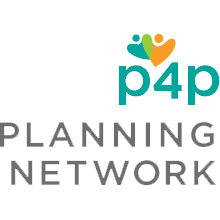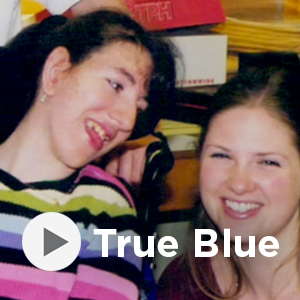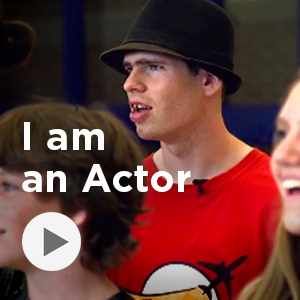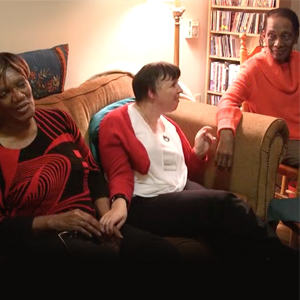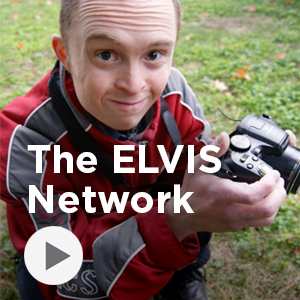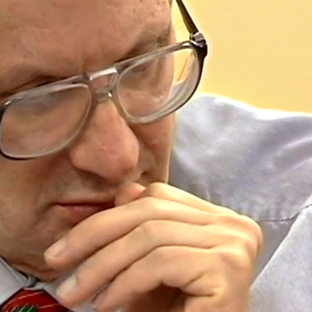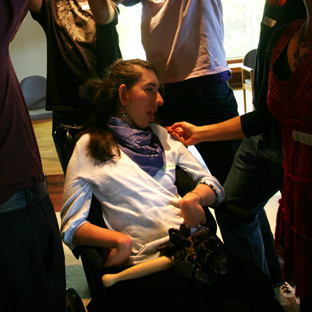
GUIDE TO MAKING FRIENDSHIPS WITH SUPPORTIVE PEOPLE
GUIDE TO MAKING FRIENDSHIPS WITH SUPPORTIVE PEOPLE
People need people. It’s that plain and simple. Yet studies have shown we are facing a loneliness epidemic. We often hear that seniors, people living in big cities, newcomers or retirees are often lonely, yet no person or sector is immune.
If you happen to be living with an intellectual disability the odds of being lonely are very high. While we cannot offer a quick fix, we have found that there are intentional things people can do to increase the likelihood that new relationships or friendships may develop.
Reciprocity
Reciprocity
For people seeking to build their network of friends, reciprocity in a relationship matters.
It’s not uncommon for people who are vulnerable to be close to those paid to be with them or who volunteer to support them. While these people may be generous and caring, the relationships are one sided. Staff are paid to be involved and often move on when jobs change. They may be very nice people but friendship is something different.
Reciprocal means both people freely contribute to and benefit from the relationship. And both people chose to be together for no other reason than they like to spend time together.
It’s an ideal worth striving for.
Anna and Rebecca first met in a dance group in high school. Initially they did not know what to expect from each other and their relationship started off slowly. Over time, their friendship grew and they have been close friends now for almost 20 years. Theirs is a relationship that is truly reciprocal.
Supportive Relationships
As parents we’re concerned about the day that we can no longer care for our children. An equally critical concern is who will be there for them?
In a perfect world, our children would be surrounded by people who will love them for who they are and will look out for them. Not that these friends will replace us as parents, but they will be involved and will provide care and oversight. This is what supportive relationships can offer.
If this is your goal, then the choices you make throughout your child’s life will impact the possibility of friendships forming. Who your children come in contact with on a regular basis will impact the opportunities for relationships.
If you choose to have your son or daughter only involved in special programs for people with a disability, then it is highly unlikely that supportive relationships will form. Your family member may develop friendships with others with disabilities, but the probability is low they will be supportive.
To have any chance of developing supportive relationships, your son or daughter must be involved in community activities with others of the same age in their neighbourhoods and schools. It’s about being intentional to create opportunities where supportive relationships may take root.
Being Intentional
Connecting Over Shared Interests
Friendships are more likely to flourish among people who gather on a regular basis around an interest or activity. Creating opportunities to support your son or daughter to uncover and explore their interests can often be a first step leading to new relationships. What do they like? Where in your community do others with the same interests gather?
Frequency of Contact
Very few people become friends the first time they meet. All relationships take to time to evolve. It’s human nature. When thinking of activities to join, look for groups that meet consistently over an extended period of time. One-off events may make for a fun day but will not result in new friendships.
Brock Welton and his family took advantage of this idea. Interested in theatre, Brock auditioned for and was offered a role in a local theatre group. With rehearsals, performances and parties, Brock and his fellow actors had many opportunities to get to know one another.
Hospitality
If you’re a natural community builder, you know the importance of hospitality. But if you are not, you may have to be a little more intentional about inviting others in to your life. It can be as simple as an invitation for a cup of coffee with a neighbour, a walk in a park or organizing a birthday party or holiday celebration.
We’ve learned a great deal about hospitality from Susan Beayni who twice yearly hosts a pot luck for her daughter Rebecca, now in her thirties. Rebecca and her supporters invite bus drivers, security guards, neighbours, or co-workers - anyone who she comes in contact with on a regular basis. She calls the event Rebecca’s Heart Circle and from year to year attendance can vary from 2-3 people to 20-30. Susan never knows how many will attend but feels that whoever shows up are the right people and each of them will get a chance to know Rebecca better.
Most of us have a personal support network, whether or not we call it that. A Personal Support Network (also called a Circle of Friends) is a small group of people who come together freely to offer support and friendship to a person, as well to each other.
The long-term intention is to sustain the network so they will remain involved when the parents can no longer provide care. Networks members can contribute a great deal to a persons’ life at any age and is a great support to the entire family.
Support Networks may be organized by an Independent Facilitator or run by a family member. Every support network is unique. Eric’s personal support network is primarily a social group and meets several times a year.
Long Term Security
It’s nice to think that everyone should have others to spend time with as they age. But supportive relationships are much more than nice-to-haves. They can be critical to long term safety and security. Often families struggle identifying trustees that may step up and manage trusts setup specifically for a person with a disability once parents pass. Developing supportive relationships over the long term can help with this.
Additionally, there is a movement to establish Microboards in Ontario. Microboards are incorporated bodies that are setup to manage and administer affairs of a person with a disability. Microboards must be comprised of people who know and care for the person and have a supportive relationship.
While supportive relationships enhance quality of life for a person with a disability, they can also play a very critical role in long term financial security.
Tips for Nurturing Supportive Friendships
Whether your child is young or old, be proactive in building relationships
- For young children, create opportunities for play dates, park visits, parties, etc.
- For older children, reach out early and often to initiate activities with others like dinners, walks, movie nights, etc.
- Teach your child skills they can use to participate in activities with others. One mom we met taught her daughter to shoot baskets at age five so she would have something to do at recess with her classmates.
- If you have support staff, emphasize that their role should be to develop supportive relationships. Their role should not be to attend events as a friend, but to support the person in situations that may lead to relationships.
- Break barriers by helping others understand your child if appropriate. Sharing your story can open others up to supportive relationships.
- Keep in contact with those who show an interest – children, teachers, support workers, neighbours, friends of siblings, etc. – each connection may, at some point, step up to offer support or participate in your support network down the road.
- Join groups that get together on a consistent basis – Brownies/Scouts, choir or church groups, a community garden, exercise class, volunteer groups, etc.
- Help your child use social media to connect with others – maybe create a secure Facebook Group.
- Step back – leave room for others to step up and offer support
- Be aware of age appropriateness – ask others the same age as your child to offer suggestions on current styles and trends.
- Look for community-based activities in natural (not congregated) settings.
Please send any additional thoughts or feedback on this Action Guide to info@p4p.ca

